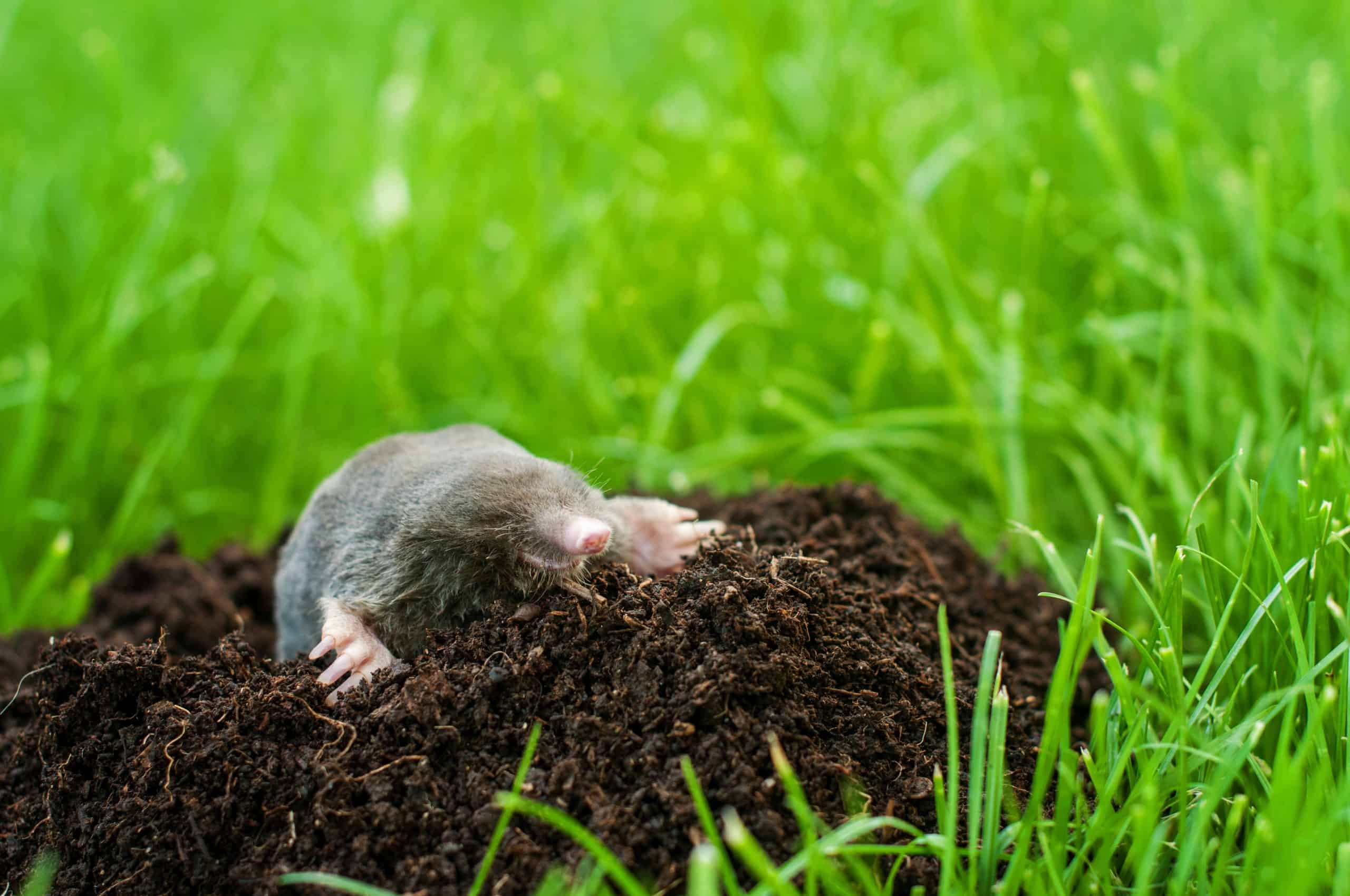Moles and voles are small mammals that can cause quite a bit of damage to your yard in a short amount of time because their destructive tunneling. As they dig through the earth, they destroy roots weakening the grass or plants above.
Eliminating these annoying pests can be tricky since they live underground and out of sight. Fortunately for home and business owners, Rottler Pest Solutions has proven solutions using targeted applications of bait and strategic placement of traps as well as repellents to repel from the lawn. This product does not kill the moles, it just makes the area unfavorable for them.
The good thing is that moles and voles – who may look like a mouse – have no interest in coming inside your home. They prefer the great outdoors to the indoors.
What Attracts Moles and Voles
The primary attraction for moles is the presence of earthworms and other insects. If there are earthworms in your lawn moles will seek them out. Moles will survey a lawn to identify potential food sources and if they don’t like what they see, they’ll move on.
A recent rainfall, or moisture from overwatering can push earthworms to the surface, resulting in attracting moles. Moles can be found under brick patios, pavers, rocks, or the base of trees where excess moisture exists.
Moles are a year around pest and are attracted to cool moist soil. If your area has experienced above average rainfall, they might be more active.
Voles will follow moles and take advantage of the hard work the moles did in digging out the tunnels. Voles will feed on the roots of vegetation including grass, plants, shrubs and flowers. If they feel safe – voles have many natural predators – they will travel above ground and can consume your lawn in search of food, leaving tunnel paths behind.
More on Moles
Moles are furry lawn critters gray to brown in color and about 6 to 8 inches long with a pointed snout, black velvety fur and strong hands with large, sharp claws that allow them to move through dirt and soil in a very efficient fashion.
They typically forage for food at the surface but have been known to form underground tunnels – which can run 3 to 5 ft. below the surface. This results in significant damage to your lawn in a relatively short time frame. They live almost their entire life underground, will reinfest old burrows, are territorial and multiple can come into a yard if there is ample food supply.
Moles eat insects – mostly earthworms and grubs – in large amounts each day. How do you know you have moles in your lawn? A telltale sign of the rarely seen mole are the above-ground dirt mounds that result in the soil being pushed up to the surface. Unexplained dead grass is another sign of moles as they will destroy turf roots when the dig their tunnels.
A Little About Voles
Voles, also known as lawn rodents or meadow mice, are small rodents 3 to 5 inches long. Their coats can range in color from brown to gray and they have short tails, short legs, and a thick, furry coat. Voles may breed throughout the year but are most active in the spring and summer.
Voles reproduce quickly – six to nine times per year, with six to nine young in each litter – and their tendency to nest under patios, porches and in mulch beds, lawn rodents can lead to quite a bit of damage to your property.
As mentioned earlier, voles will announce their presence in your lawn by building runways on the surface of your lawn. The runways may be about one to two inches wide. A vole’s burrow can be identified by holes found in lawns or around the base of trees. Unlike moles there will be no soil mounds around your yard.
How to Stop Moles and Voles
- Keep your lawn insect free – insects including earthworms and grubs are a favorite food source.
- Avoid overwatering your lawn – moles and voles are attracted to moist soil.
- Eliminate excess moisture including broken sprinkler systems, leaking faucets or low spots.
Contact Rottler Pest Solutions to Assist with Moles and Voles Today!
Protect your yard from moles and voles and call (877) 768-8537, email or chat online with Rottler pest specialist today about a how to protect you and your family from stinging insects.


